This week in Florida history May 28-June 3

A historic flight and a historic right
A Historic Flight
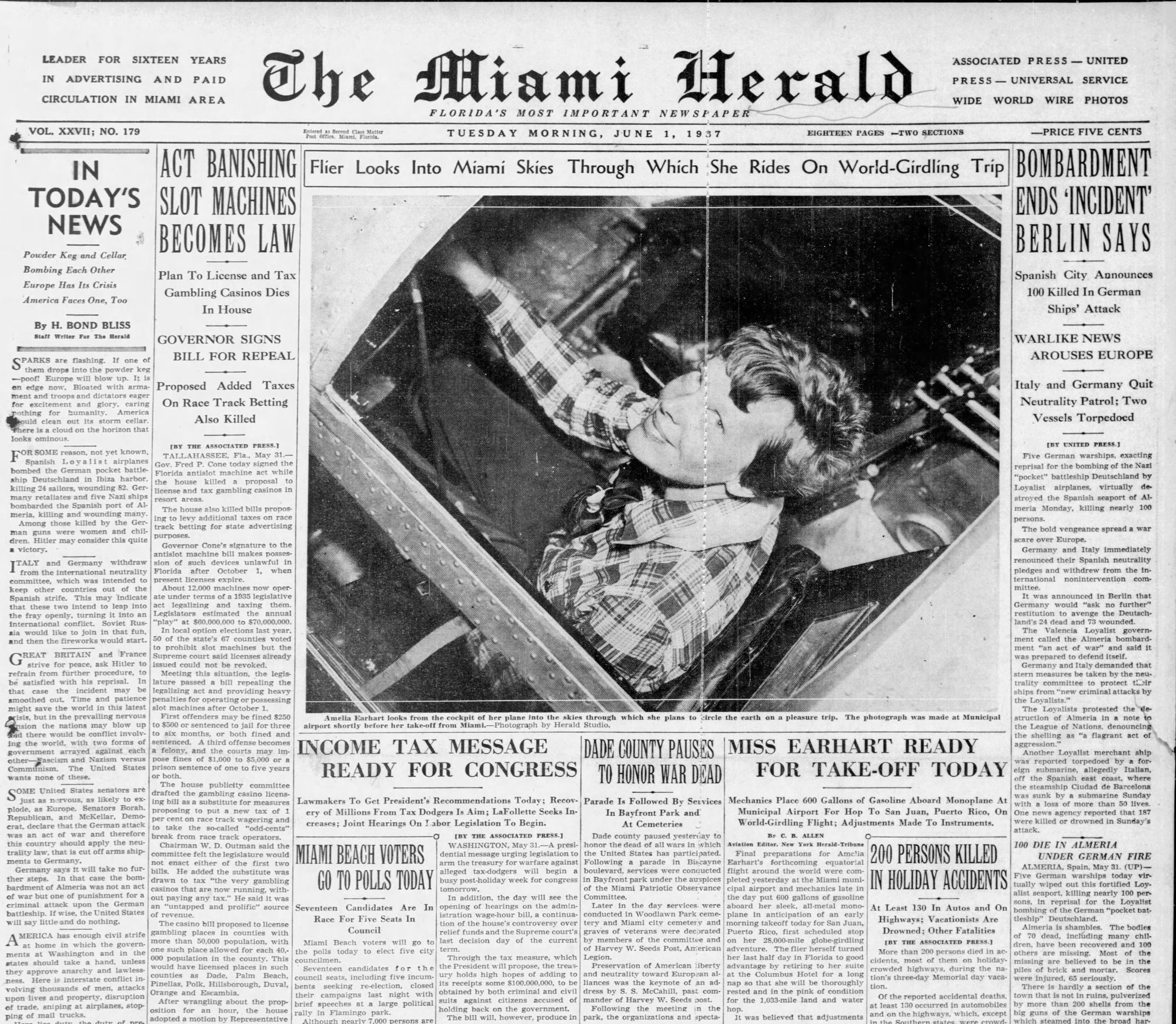
A Historic Flight
Miami, Florida, June 1, 1937
Eighty-six years ago, Amelia Earhart climbed into her twin-engine Lockheed Electra at Miami's municipal airport, beginning her second and final attempt to circumnavigate the world. Some reports suggest she left the United States that day, but the reality is she flew to the United States territory of Puerto Rico. A month later she and her co-pilot would disappear over the Pacific Ocean.
If you follow the story of Amelia Earhart before the ill-fated flight you'll know that this historic flight has many origin points. Originally, her flight around the world was to start in Oakland, California, and head west over the Pacific Ocean. As the Miami News put it in 1984, she flew from Oakland to Miami in May of 1937 to visit her stepson on a "lark." But while in Miami, "she claimed, without detailing it, that changes in worldwide weather patterns necessitated the change," to an eastern flight originating in Miami.[1]

But if, like my family, you spent time at Purdue University, you’ll know that in some respects, the famous flight started there, where she was a visiting faculty and advisor to aeronautical engineering after accepting an offer from Purdue University president Edward C. Elliot to head a “new center devoted to professional careers for women in 1934.[2] In April of 1936 the Purdue Research Foundation created the Amelia Earhart Fund for Aeronautical Research, which generated the $80,000 necessary to purchase the “flying laboratory,” Lockheed Electra.[3]
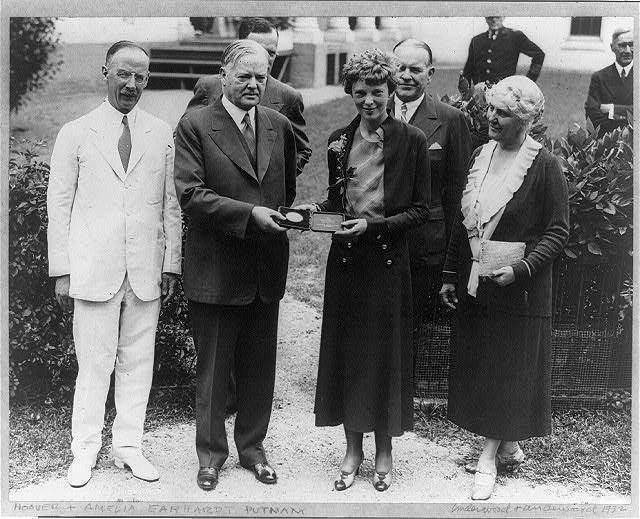
On January 21, 2020, a group of women’s organizations in the Miami, Florida area dedicated a historical marker of her 1937 on the site of the former airport on the northern edge of the city of Miami as a testament to this historic flight.[4] Yet, Earhart was more than just that famous flight or the global celebrity that many remember. Five years before the famous flight, Earhart, already a global celebrity, used her fame to pressure the President of the United States, Herbert Hoover, directly, to get the Equal Rights Amendment passed, telling him:
“I know from practical experience of the discriminations which confront women when they enter an occupation where men have priority in opportunity, advancement and protection. In aviation the Department of Commerce recognizes no legal differences between men and women licensed to fly. I feel that similar equality should be carried into all fields of endeavor, so that men and women may achieve without handicap because of sex.
As far as our country is concerned, in every State of the Union today there are discriminations against women in the law. I join with the National Woman’s Party in hoping for the speedy passage of the Lucretia Mott Amendment, which would write into the highest law of our land that ‘men and women shall have equal rights throughout the United States and every place subject to its jurisdiction.’ Your own statements on equality of opportunity make me believe you understand our desire.”[5]
Though the anniversary of her historic flight made little news this week, it is always worth remembering champions of equal rights and smashers of artificial barriers such as Earhart.
A Historic Right
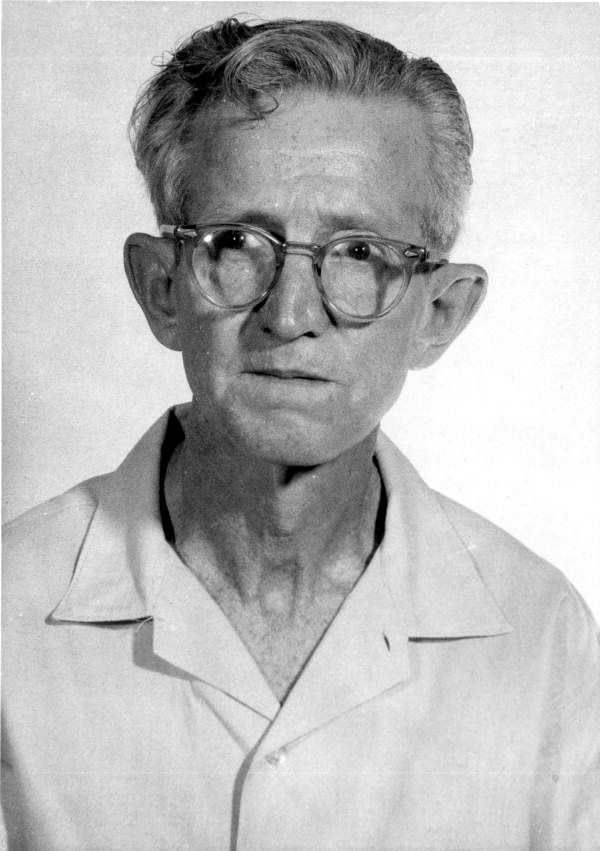
June 3, 1961, Panama City, Florida
But the Equal Rights Amendment, though now ratified by enough states to pass into law, did not become the law of the land, an exhausting coda to Earhart’s legacy that continues to inspire. Though the Amendment to the Constitution was originally proposed in the 1920s and was finally sent to the states half a century later in 1972. It needed to be ratified by enough states to become part of the Constitution. The states had until 1982 to make that happen and failed to do so. With at least 38 states now ready to ratify the Constitution with the Amendment, Democrats proposed the law again, only to see it blocked by a filibuster this April by the GOP, even though it had 51 votes in favor of passage.
This brings us to another huge story out of Florida’s past, the story of a petty criminal named Clarence Earl Gideon, a 50 year old man with an eighth grade education and a bout of kleptomania, according to his family. On June 3, 1961 the owner of Bay Harbor Pool Room in Panama City, Florida reported $65 cash stolen from his establishment along with some beer and soda. A witness said he saw Gideon enter the building at 5:30 am and Giddeon was arrested.
Giddeon immediately asked for a lawyer to be appointed by the court because he was innocent, but could not afford a lawyer. The judge told him that he could not have a lawyer, which was consistent with a 1942 Supreme Court decision called Betts v. Brady which according toing the University of Michigan Law school, “held that unless the defendant’s case met an ambiguously defined set of “special circumstances,” the judge could only appoint counsel to a defendant if he or she was charged with a capital offense.”[6] While acting as his own attorney Gideon made several mistakes, apparently including calling a police officer as a witness, and was sentenced to five years in prison.[7]
While in prison, Gideon used the facility library to study the law and petitioned the Florida Supreme Court under the 6th (right to counsel) and 14th Amendments (due process) of the US Constitution for a writ of habeas corpus, a procedure to determine if a prisoner’s detention is lawful.[8] The Florida Supreme Court dismissed his claim in a last ditch effort Gideon, a man with an 8th grade education, hand wrote, in pencil, on prison stationary, an appeal to the United States Supreme Court, which was officially received by the Court on January 6, 1962.
A Washington DC lawyer named Abe Fortas was appointed Gideon’s lawyer and together they made his claim to the highest court in 1963. The National Registry of Exonerations, the University of Michigan site I cited earlier, summarizes what happened next beautifully:
Fortas argued, first, that “the aid of counsel is indispensable to a fair hearing,” and that even the most competent laymen cannot produce a reasonable defense without comprehensive knowledge of the legal process. Next, Fortas attacked the “special circumstances” required to necessitate an attorney by asking the Court, “How can a judge, when a man is arraigned, look at him and say there are special circumstances? Does the judge say, ‘You look stupid,’ or ‘Your case involves complicated facts’? It is administratively unworkable.” Moreover, since Betts v. Brady did not create a clear-cut standard for the states to follow, the decision spawned an influx of habeas corpus petitions that in many ways proved more burdensome to the system than simply appointing an attorney from the outset. Lastly, Fortas pointed to 23 states that had filed amicus briefs in favor of overruling Bettsonce and for all.
Representing the respondent, Bruce Robert Jacob, a relatively inexperienced lawyer and the 26-year-old Assistant Attorney General of Florida, countered Gideon’s challenges by appealing directly to states’ rights. In affirmation of the Betts decision, he argued that every state should have the right to decide when and under what circumstances lawyers should be appointed. Switching to a more pragmatic line of argument, he claimed that the cost of providing counsel to all defendants would be a “tremendous burden on the taxpayers.”
He won.
The Court held that the Sixth Amendment’s guarantee of counsel is a fundamental right essential to a fair trial and, as such, applies the states through the Due Process Clause of the Fourteenth Amendment. In overturning Betts, Justice Black stated that “reason and reflection require us to recognize that in our adversary system of criminal justice, any person haled into court, who is too poor to hire a lawyer, cannot be assured a fair trial unless counsel is provided for him.” He further wrote that the “noble ideal” of “fair trials before impartial tribunals in which ever defendant stands equal before the law . . . cannot be realized if the poor man charged with crime has to face his accusers without a lawyer to assist him.”[9]
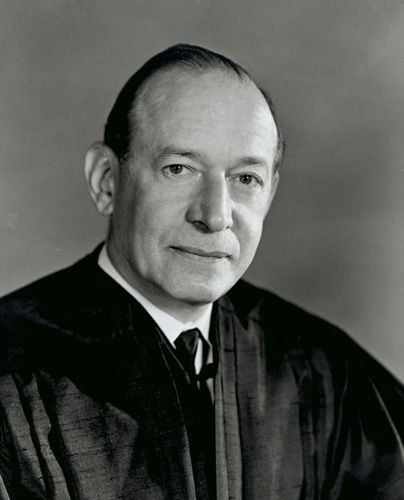
Abe Fortas would go on to sit on the Supreme Court himself, even being nominated for Chief Justice by Lyndon Johnson in 1968. If his name sounds familiar, he has been in the news lately as he was the justice who resigned from the Court in 1969 because of an awkward friendship with a man with improper financial dealings with people who had business before the Court. People have been comparing another Clarence (remember, we’re talking about ClarenceEarl Gideon), Clarence Thomas, who many think should resign from the Supreme Court.[10]

The story of the Supreme Court Case, known as Gideon Vs. Wainwright, the case that secured our right to an attorney, would be memorialized first as a book named Gideon’s Trumpet, by Anthony Lewis, which in turn would become a movie staring Henry Fonda as Gidon. Author Mike Louviere in a synopsis of this story for The Orange Leader summarizes Gideon’s life and case thusly, “Clarence Earl Gideon was a nearly illiterate, mostly penniless petty criminal. He was meek in appearance and at the age of 47 was said to look as though he was in his late 60s. His courage and tenacity in appealing to the High Court had the most effect on personal rights of any case filed in the 20th Century.”[11]
Like the ERA, the story does not end there and does not have the happiest ending. Gideon v. Wainwright, combined with other cases using the 14thAmendment to establish equal protection under the law via Chief Justice Earl Warren’s Court, expanded the rights of people in the United States facing criminal charges. The right to an attorney sounds familiar because it became a part of the so-called Miranda Rights established in the 1967 Supreme Court decision in Miranda v. Arizona. This may sound extreme, but it is a fact that police, in general, hate the decisions in Gideon and Miranda. While Gideon was getting his day in court, civil unrest in the United States was peaking, beginning with the 1964 murder of a young Black child by a police officer triggering the Harlem New York rebellion of that year.[12] This eventually led to the so called Kerner Report in 1968 on rebellions in the United States that, “White society,” the presidentially appointed panel reported, “is deeply implicated in the ghetto. White institutions created it, white institutions maintain it, and white society condones it.” The nation, the Kerner Commission warned, was so divided that the United States was poised to fracture into two radically unequal societies—one black, one white.” These rebellions were, according to William S. Pretzer the National Museum of African American History and Culture’s senior curator. “Commonly sparked by repressive and violent police actions, urban uprisings were political acts of self-defense and racial liberation on a mass, public scale. Legislative successes at the federal level with the Civil Rights and Voting Rights Acts were not reflected in the daily lives of African-Americans facing police misconduct, economic inequality, segregated housing, and inferior educations.”[13]
In the 1960s, as the Supreme Court made decisions that expanded people’s rights when arrested and in court, the President’s own commission found that growing unrest was caused, in part, by the police themselves, Americans were beginning to demand Civilian Oversight Commissions to oversee the behaviors of police, first, again, in New York City. The police and their unions responded to the formation of a Civilian Oversight Panel by basically saying, “Nice City, it’d be a shame if anything happened to it,” and ran a massive fear based campaign to thwart the panel. Take for example the infamous advertisement in the September 26, 1964 issue of the New York Daily News of a young woman getting off of a New York Subway with the caption in massive text, “The Civilian Review Board must be stopped! Her life…your life...may depend on it.”
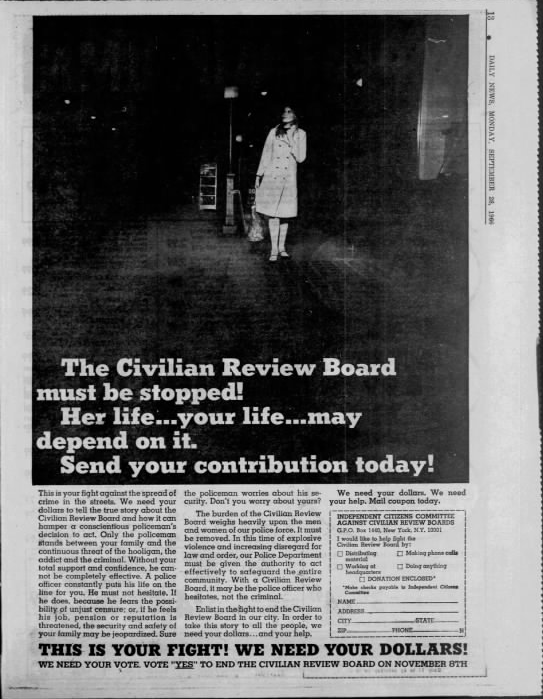
After police riots in Miami around the 1968 and 1972 Republican National Conventions, the city of Miami Beach called for a Civilian Review Board, the police responded by sending one of their own to Tallahassee to represent them in congress. That man, Miami Police Sgt. A. M. “Tony” Fontana became one of the first active law enforcement officers to hold office in a state congress in American history. His first act as a member of congress was to demand a bill of rights for police officers called a Law Enforcement Officers Bill of Rights (LEOBOR). “Prisoners have their rights…everybody gets them, but when it comes to law enforcement, we can’t get them,” Fontana said at the time. Fontana protested resistance to the LEOBOR, claiming that policemen were continually subject to harassment and that they needed to know they had a “chance” to survive civilian complaints when they were merely doing their jobs.[14]
With a similar law originating the same year in Maryland, Law Enforcement Officers Bills of Rights, which were a direct pushback to the rights given to us by Gideon and Miranda, began to spread throughout the United States. By 1992 none other than Senator Joe Biden was pushing for a national set of rights for police officers.[15] But, after high profile murders, such as George Floyd, by police officers who later hid behind these laws (yes, Derek Chauvin was convicted of murdering George Floyd--after hiding behind his state's LEOBOR), states started re-evaluating the value of laws that provided police officers with not the same rights as ordinary citizens, but more rights than ordinary citizens. Maryland repealed their LEOBOR in 2021 for example and a national story on how LEOBORs encourage corruption, featuring a police captain in Miami, gained attention.[16]
While police and their unions used Gideon and the related case of Miranda to push for more rights for themselves, the promises of Gideon remain elusive for most poor Americans. As NPR reported in March, “The promise of that landmark ruling in Gideon v. Wainwright has been frustrated by heavy caseloads for public defenders and tight budgets that prioritize police, prosecutors and prisons over the right to counsel. ‘Understaffed, crushing caseloads, underpaid and undervalued, and this is a conscious decision that our legislatures make throughout this country,’ said Stan German, executive director of New York County Defender Services.”[17]
In what may be a bit anecdotal, John Oliver’s outstanding news comedy show, Last Week Tonight, comes back to this theme often, as ensuring equal protection under the law, as enshrined over 150 years ago in the 14th Amendment, remains elusive.[18] Still, if a man with an eighth-grade education, a pencil, a piece of prison stationary and a determination to clear his name can change the course of history, we should have hope that the dream of equal protection under the law may one day become a reality.
Caputo, Mark. “How Do Bad Cops Stay in Power? Just Look at Miami.” Politico, October 22, 2021. https://www.politico.com/news/magazine/2021/10/22/javier-ortiz-florida-police-misconduct-protections-516231.
Dismore, David M. “Today in Feminist History: Amelia Earhart Fights for the Equal Rights Amendment (September 22, 1932).” Ms. Magazine (blog), September 22, 2020. https://msmagazine.com/2020/09/22/feminist-history-september-22/.
“Facts and Case Summary - Gideon v. Wainwright | United States Courts.” Accessed June 3, 2023. https://www.uscourts.gov/educational-resources/educational-activities/facts-and-case-summary-gideon-v-wainwright.
Florida History Network. “On This Day in Florida History - June 3, 1961 - Arrest Made in Case That Leads to ‘Right to an Attorney.’” Accessed June 3, 2023. http://www.floridahistorynetwork.com/june-3-1961---arrest-made-in-case-that-leads-to-right-to-an-attorney.html.
Hinton, Elizabeth Kai. America on Fire: The Untold History of Police Violence and Black Rebellion since the 1960s, 2021. https://www.vlebooks.com/vleweb/product/openreader?id=none&isbn=9780008443856.
Johnson, Carrie. “You Have the Right to a Lawyer, but Public Defenders Note a Lack of Resources, Respect.” NPR, March 18, 2023, sec. Law. https://www.npr.org/2023/03/18/1164296236/gideon-wainwright-anniversary-public-defender.
Kleinberg, Howard. “Earhart’s Last Flight Began Here.” The Miami News, August 18, 1984, sec. Miami: The way we were. newspapers.com.
Lacovara, Philip Allen. “Clarence Thomas Should Follow the Abe Fortas Precedent and Resign Gracefully.” Text. The Hill (blog), April 16, 2023. https://thehill.com/opinion/judiciary/3953176-clarence-thomas-should-follow-the-abe-fortas-precedent-and-resign-gracefully/.
Leader, Orange. “AND NOW YOU KNOW — Thief Who Changed American Jurisprudence Owned an Orange Bar.” Orange Leader, July 16, 2022. https://www.orangeleader.com/2022/07/16/and-now-you-know-thief-who-changed-american-jurisprudence-owned-an-orange-bar/.
LII / Legal Information Institute. “Habeas Corpus.” Accessed June 3, 2023. https://www.law.cornell.edu/wex/habeas_corpus.
Magazine, Smithsonian, and Alice George. “The 1968 Kerner Commission Got It Right, But Nobody Listened.” Smithsonian Magazine. Accessed June 3, 2023. https://www.smithsonianmag.com/smithsonian-institution/1968-kerner-commission-got-it-right-nobody-listened-180968318/.
Mansfield, Bill, and Bruce Giles. “Officer’s ’Bill of Rights Battled in Session’s Last Days.” The Miami Herald, May 27, 1974, sec. B.
Purdue University. “Earhart’s Legacy Thrives at Purdue University,” 2009. https://www.purdue.edu/uns/x/2009b/091019CordovaEarhart.html.
Robin, Jason. “Clarence Earl Gideon - National Registry of Exonerations Pre 1989.” The National Registry of Exonerations. Accessed June 3, 2023. https://www.law.umich.edu/special/exoneration/Pages/casedetailpre1989.aspx?caseid=113.
Simpson, Joseph. “Biden Proposed "Police Officer’s Bill of Rights’ Two Months after Rodney King Beating.” Newspaper. washingtonexaminer.com, June 3, 2020. https://www.washingtonexaminer.com/news/biden-proposed-police-officers-bill-of-rights-two-months-after-rodney-king-beating.
Smithsonian Institute. “One Life: Amelia Earhart | National Portrait Gallery, Smithsonian Institution.” Accessed June 3, 2023. https://npg.si.edu/exhibit/earhart/pop-ups/11.html.
Tester, Hank. “Amelia Earhart’s Legacy Lives on in South Florida,” March 22, 2023. https://www.cbsnews.com/miami/news/amelia-earharts-legacy-lives-on-in-south-florida/.
Wiggins, Ovetta, and Erin Cox. “Maryland Enacts Landmark Police Overhaul, First State to Repeal.” The Washington Post, n.d.
[1] Kleinberg, “Earhart’s Last Flight Began Here.”
[2] “One Life: Amelia Earhart | National Portrait Gallery, Smithsonian Institution.”
[3] “Earhart’s Legacy Thrives at Purdue University.”
[4] Tester, “Amelia Earhart’s Legacy Lives on in South Florida.”
[5] Dismore, “Today in Feminist History.”
[6] Robin, “Clarence Earl Gideon - National Registry of Exonerations Pre 1989.”
[7] “On This Day in Florida History - June 3, 1961 - Arrest Made in Case That Leads to ‘Right to an Attorney.’”
[8] Robin, “Clarence Earl Gideon - National Registry of Exonerations Pre 1989”; “Habeas Corpus.”
[9] “Facts and Case Summary - Gideon v. Wainwright | United States Courts.”
[10] Lacovara, “Clarence Thomas Should Follow the Abe Fortas Precedent and Resign Gracefully.”
[11] Leader, “AND NOW YOU KNOW — Thief Who Changed American Jurisprudence Owned an Orange Bar.”
[12] Hinton, America on Fire, 21.
[13] Magazine and George, “The 1968 Kerner Commission Got It Right, But Nobody Listened.”
[14] Mansfield and Giles, “Officer’s ’Bill of Rights Battled in Session’s Last Days.”
[15] Simpson, “Biden Proposed "Police Officer’s Bill of Rights’ Two Months after Rodney King Beating.”
[16] Wiggins and Cox, “Maryland Enacts Landmark Police Overhaul, First State to Repeal”; Caputo, “How Do Bad Cops Stay in Power? Just Look at Miami.”
[17] Johnson, “You Have the Right to a Lawyer, but Public Defenders Note a Lack of Resources, Respect.”
[18] Though a comedy program, Last Week Tonight uses a comedy platform to take serious looks at real issues with society. The research team is outstanding and the quality of the show top notch. As Wikipedia identifies its “purpose,” While broadly within the categories of political satire and late-night talk shows, Last Week Tonighthas taken a more specific approach to deeper dives into systemic issues which intend to illustrate both the wider socio-political context and the complex interconnections and embeddedness of public policies in social outcomes.” Example episodes of the team at LWT tackling issues such as Miranda Rights include an episode entitled, “Public Defenders,” from 2015 and another from 2022 called, “Law and Order.” Though full episodes of the show are exclusive to what’s now called Max (formerly HBO Max), main segments of the show are always available on YouTube Monday morning, after they air on Sunday night.
